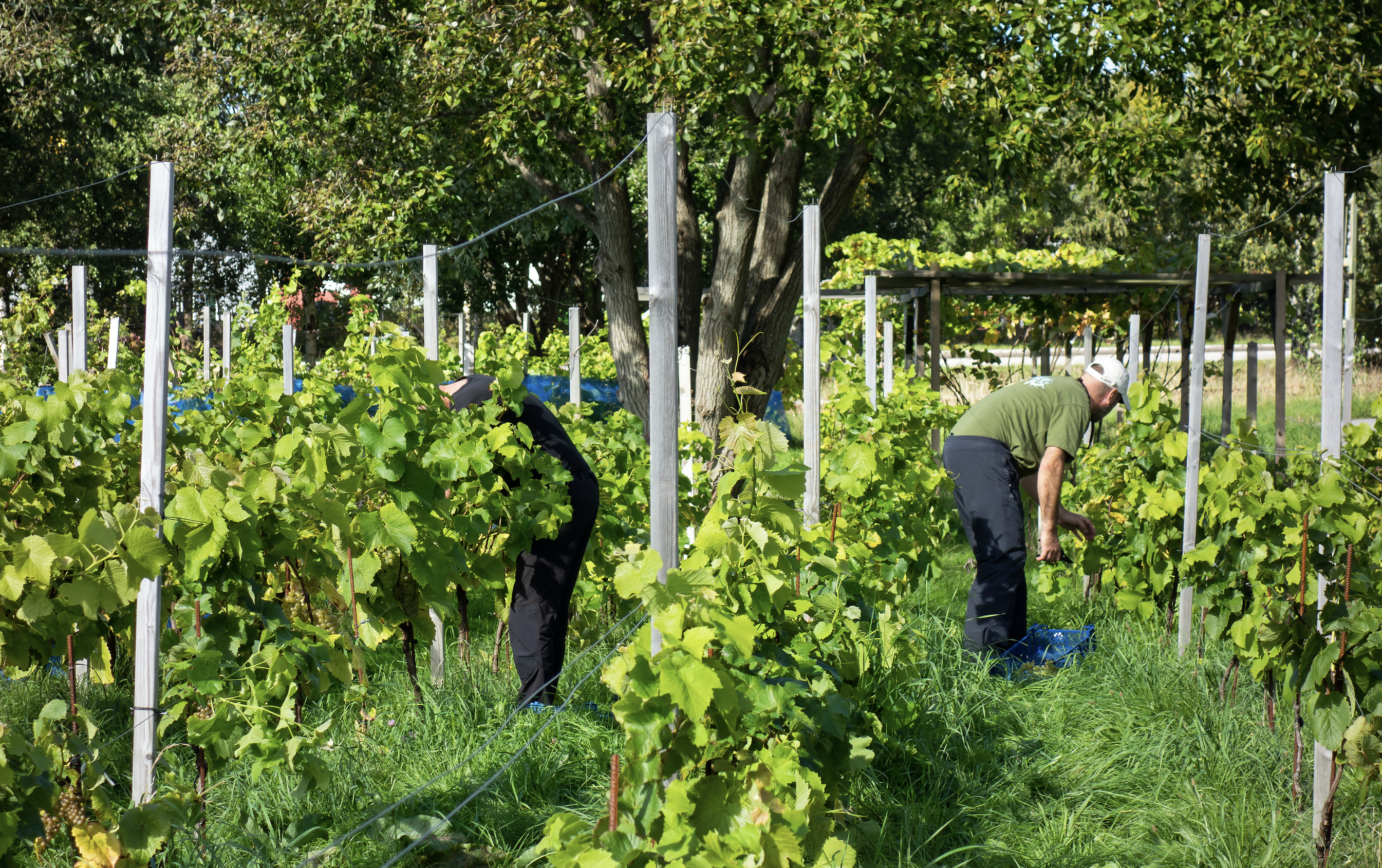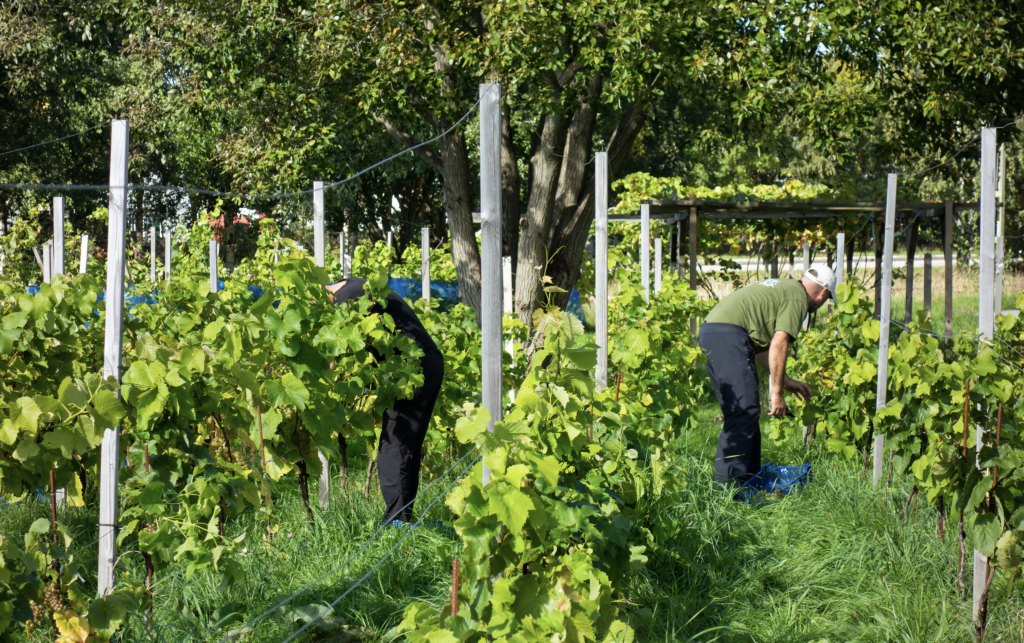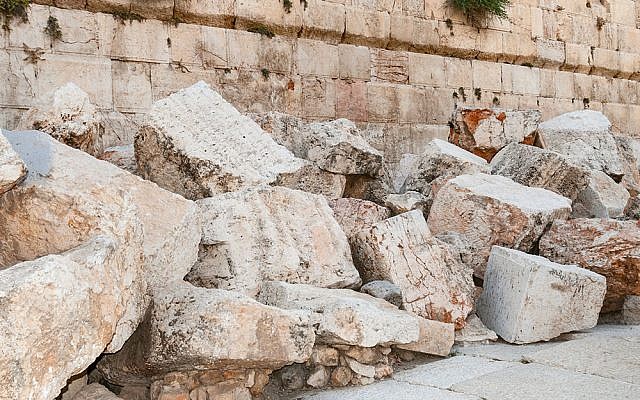
It seems that we are in a bit of a rut. This week’s lectionary reading (Matthew 21:33-36 : Proper 22A or OT27) contains yet another parable about a vineyard. What is this connection with the Church and wine? 😉 However this passage, and soon another, is often cited as one targeted against Jews, and the Jewish rejection of Christ – is it? Who is their anger against?
Are we in Holy Week or 70AD?
So in Matthew 21 – remember that verses weren’t added into the English Bibles until the 16th Century, so it was to be read continuously – Jesus has arrived in Jerusalem. We are in Holy Week. He’s just overturned the tables in the Temple, and upset the Chief Priests and Scribes.
But when the Gospel according to Matthew was believed to have been written, it was post 70 AD. The Temple had been over thrown by the Roman rulers in a devastating manner. After the destruction, “Jews throughout the world who had contributed money each year for sacrifices and temple upkeep had to pay their half-shekel as a tax to the Roman government.” This also caused much angst. Who is their anger against?
A title which gives the game away…

Our verse this week refer to the Parable of the Wicked Tenants: already a sinister title. It has already given the game away. But just who are the tenants? So let’s consider who is in the cast of this play.
I love the first line of Matthew 21: 33 – “Hear another parable“. It’s like “Are you sitting comfortably? Then Let’s begin” Perhaps you can feel the camp fire warming your legs, the smoke getting in your eyes 😉

Vineyard Owner or Householder
We have a householder who plants a vineyard. Ok so they are rich possibly, a landowner. They’ve built a hedge around it: to keep pests or people out? Are we building walls like some might want to do today?
Our imagination might also be on fire by now as we envisage this scene. But those hearing this parable might just recall Isaiah 5: 1-7 and the Song of the Vineyard. This Vineyard has a deeper meaning, for below the surface is Israel. The ‘hedge’ is the law. The meaning is metaphorical.
The Landowner rents out the Vineyard to some local tenants. OK so some interesting capitalism going on here. They are so well off they can allow others to work for them, and get them to do the hard work.
The Tenants – boo!
The Tenants are not impressed. They want some of the glory, the richness of this world. And they have done some homework. This long standing concept of owning huge swathes of land meant for many they got nothing [1]. It’s been a way throughout the centuries. Some would say that Half of England is owned by under 1% of the population. This has caused deep resentment but who is their anger against?
The Slaves
Slaves are sent but they are killed. Why? The Tenants weren’t keen to share the Fruits of the Vineyard. But isn’t it we not me?
The Son
There, Matthew 21:38, was an historical law:
If the landlord lives in a foreign country, then the heir is removed, the ownership has been lost. It may be claimed by anyone.
Jeremias, Joachim., The Parables of Jesus, , 2nd Ed., (New York : Scribner’s, 1972), p. 70. (paraphrased)
The arrival of the son suggests to them that the owner is dead. Hence, kill him, and they can make a claim.
Are you convinced? Does it sound plausible? Well they kill the Son.
Jesus then concludes the parable with a question: ‘When the Vineyard owner returns what will he do with the tenants?“
So what is your answer?
Classically, many books suggest that God is the Vineyard owner. Jesus is, of course, the Son. The Slaves are the many Prophets sent to the Jewish nation, many of whom they have ignored.
But who do you have to play the Tenants, those wicked tenants? Were they the Chief Priests and Scribes, or the Jewish people?
Who was the Parable for?
Some might say that, given it was written post the destruction of the Second Temple post 70AD, it was aimed at the Jewish leaders for allowing Jesus’ crucifixion. Considering the author of the Gospel, who is their anger against?

The very answer the Chief Priests offer confirms that that the parable is about them. They in fact are more worried about the reaction of others, the multitudes, than the real answer to the parable. (Matthew 21:45-46)
And for us today?
One possible response for us today was shown by King Hussein of Jordan. There was rumoured to be a military overthrow of the Jordanian Kingdom. This would have caused carnage to the civilian population. So what should the King should do? It’s worthy a read of this allegedly true story. [2] It highlights the vulnerability of a possible response rather than a demonstration of anger as seen above.
Rather than focus our attention upon the plight of the Chief Priests, those leaders who have colluded with the exploitative economic and social policies of the Roman Empire. They have permitted social injustices to persist when they really should have taken a stand. So where do we stand here?
So where is our vulnerability and anger? What issues which exist today cause us to feel anger or a reason to change society? How do we react? We can stand still, in silence, watching from afar. Or we can create ripples of reaction, start to make waves. Just like this man has done for Umar in Nigeria.

[1] Myers, Ched., Binding the Strong Man, (Maryknoll : Orbis Books, 2017), p.308
[2] Bailey, Kenneth.E., Jesus Through Middle Eastern Eyes, (London: SPCK, 2008), p. 418
For many this particular text is a difficult one to understand in today’s context. As mentioned in another recent post (https://dbobstoner.com/is-our-product-needing-renewal/), especially within this period of pandemic, we need to free ourselves from the yoke of being ‘fed’ and to ‘feed’ ourselves. Listening to God, hearing where this is particularly relevant in our life, our context, gives us our particular perspective.
So today I invite you to pause,invite God to speak to you, and reflect upon the passage afresh. Do we identify with any of the ‘parts of the play’, do we see where anger may be part of our life, where vulnerability could be quickly be dismissed but actually be a positive.